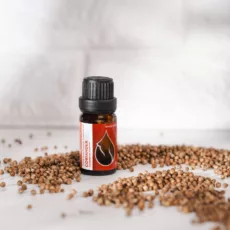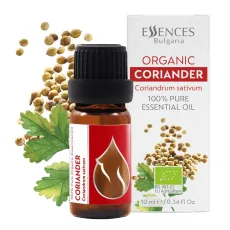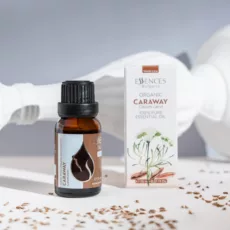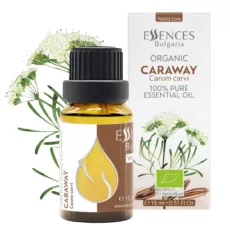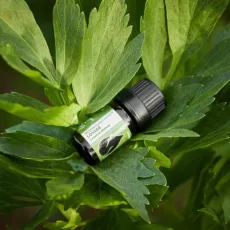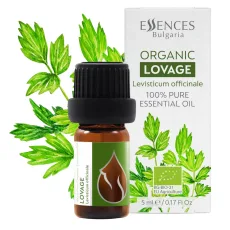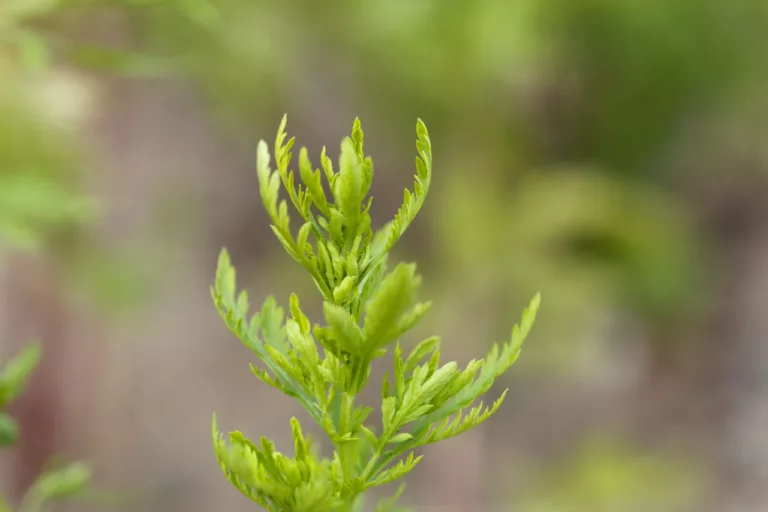Coriander
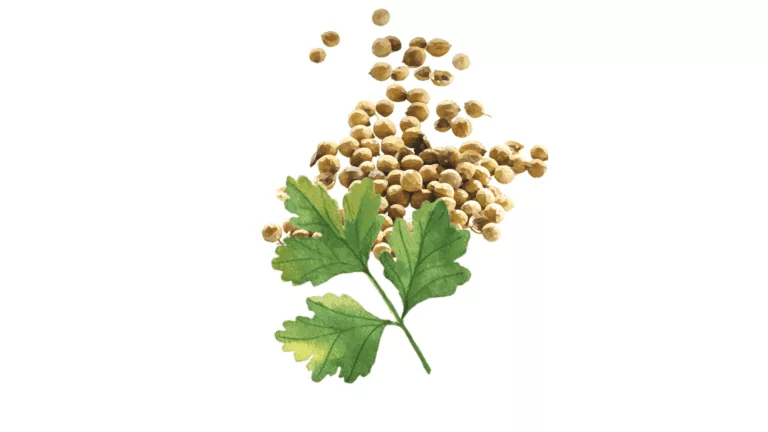
Coriander (Coriandrum sativum) is an annual herbaceous plant from the carrot family (Apiaceae). It is one of the most important crops used as a spice and for distilling essential oil. The name of the aromatic spice, first used by the Greek author Pliny, does not derive from its therapeutic, aromatic, or culinary qualities but—ironically—from the strong bedbug-like odor of the unripe fruit. The word “coriander” comes from the Greek koriannon, which literally means “bedbug,” derived from Greek koros “insect,” and the full botanical name of coriander means “a cultivated plant that smells of bedbugs.” Because of this odor, coriander seeds are not used before they ripen. By late summer the fruits turn light brown and acquire a pleasant sweet and spicy aroma.
Coriander originates from Asia Minor, although some researchers say the Eastern Mediterranean should also be considered the plant’s homeland. It is mentioned in ancient Sanskrit sources that speak of coriander in the gardens of ancient India about 7,000 years ago. Coriander seeds have been found in a tomb of Egypt’s 21st Dynasty about 3,000 years old, and later in caves from the time of ancient Israel.
According to historical sources, coriander was used by the ancient Greeks as an aphrodisiac. The Greek physician Dioscorides believed consumption of the spice increased male potency. Hippocrates, the father of scientific medicine, prescribed it as a medicament and also recommended using it to flavor wines, which significantly enhanced their beneficial effect.
In Chinese mythology, coriander seeds were thought to have the power to confer immortality. In One Thousand and One Nights (the Arabian Nights), a book compiled more than 1,000 years ago, coriander seeds are mentioned as part of a mixture believed to help a childless man beget offspring.
Coriander is mentioned in the Bible, in the Old Testament (Exodus 17:31), where the description of the manna from heaven with which Moses and his people were fed for forty years as they wandered in the desert closely resembles coriander seeds: “It was white and looked like coriander seed, and its taste was like wafers made with honey.” In the Middle Ages and the Renaissance, coriander was added to love potions, as it was thought to have aphrodisiac qualities and to stir passion, especially when consumed with wine.
The ancient Indian medical system Ayurveda relies on the spice’s valuable properties to support liver function, combat bacterial and respiratory infections, aid digestion, and cleanse the liver and kidneys. Many people find the taste of fresh coriander leaves repellent, describing it as bitter and soap-like, but the seeds are pleasing to everyone and are also highly effective in controlling blood sugar levels and reducing insulin resistance and insulin secretion, making them a superfood for people with diabetes.
Coriander is a honey plant. Its nectar production depends heavily on climatic conditions and typically occurs only every five to six years, which makes this honey rare and expensive. Coriander honey—also called “men’s honey” because it is said to increase male potency—contains a large amount of essential oils that lend it a sharp aroma, a characteristic amber color, and exceptional healing properties that support the respiratory, cardiac, and hepatic systems.
